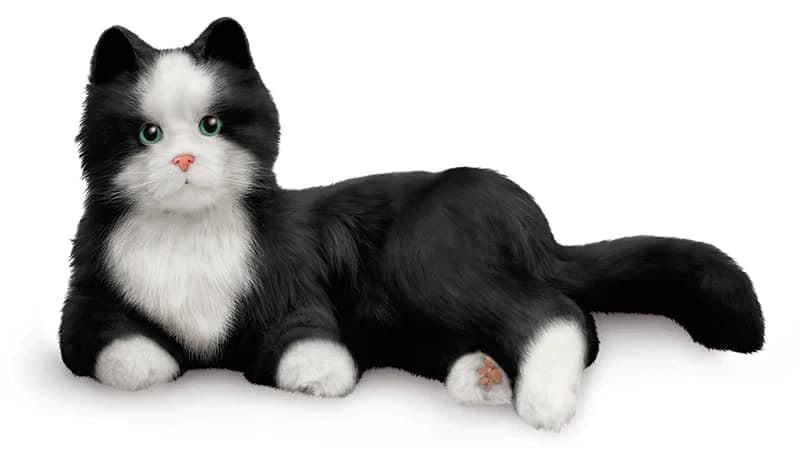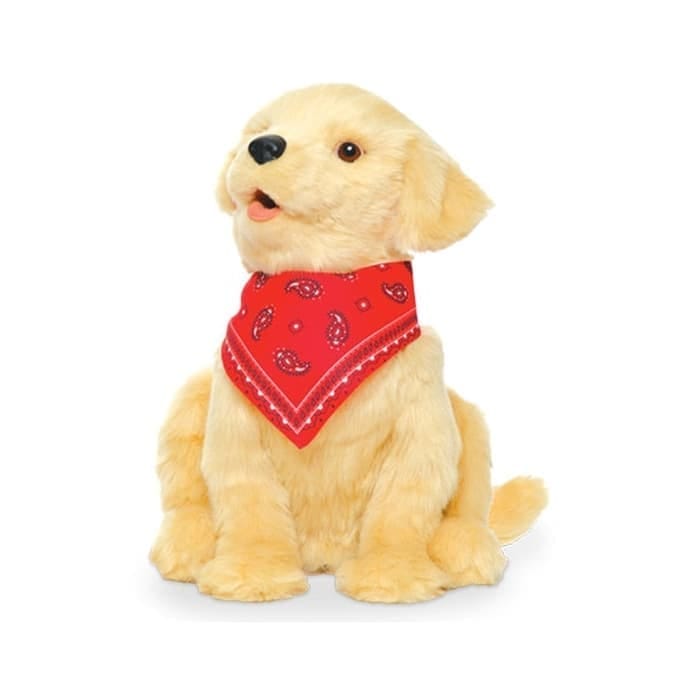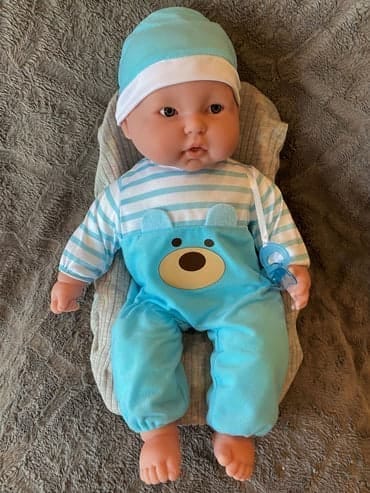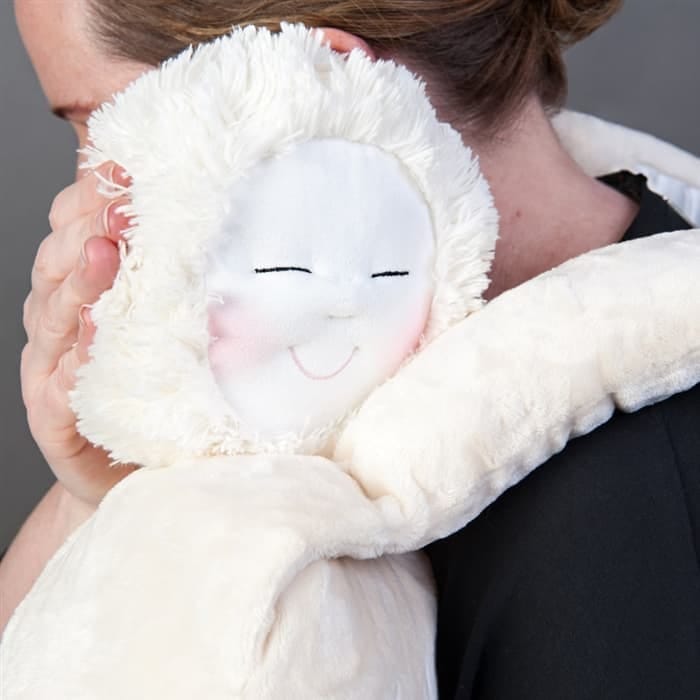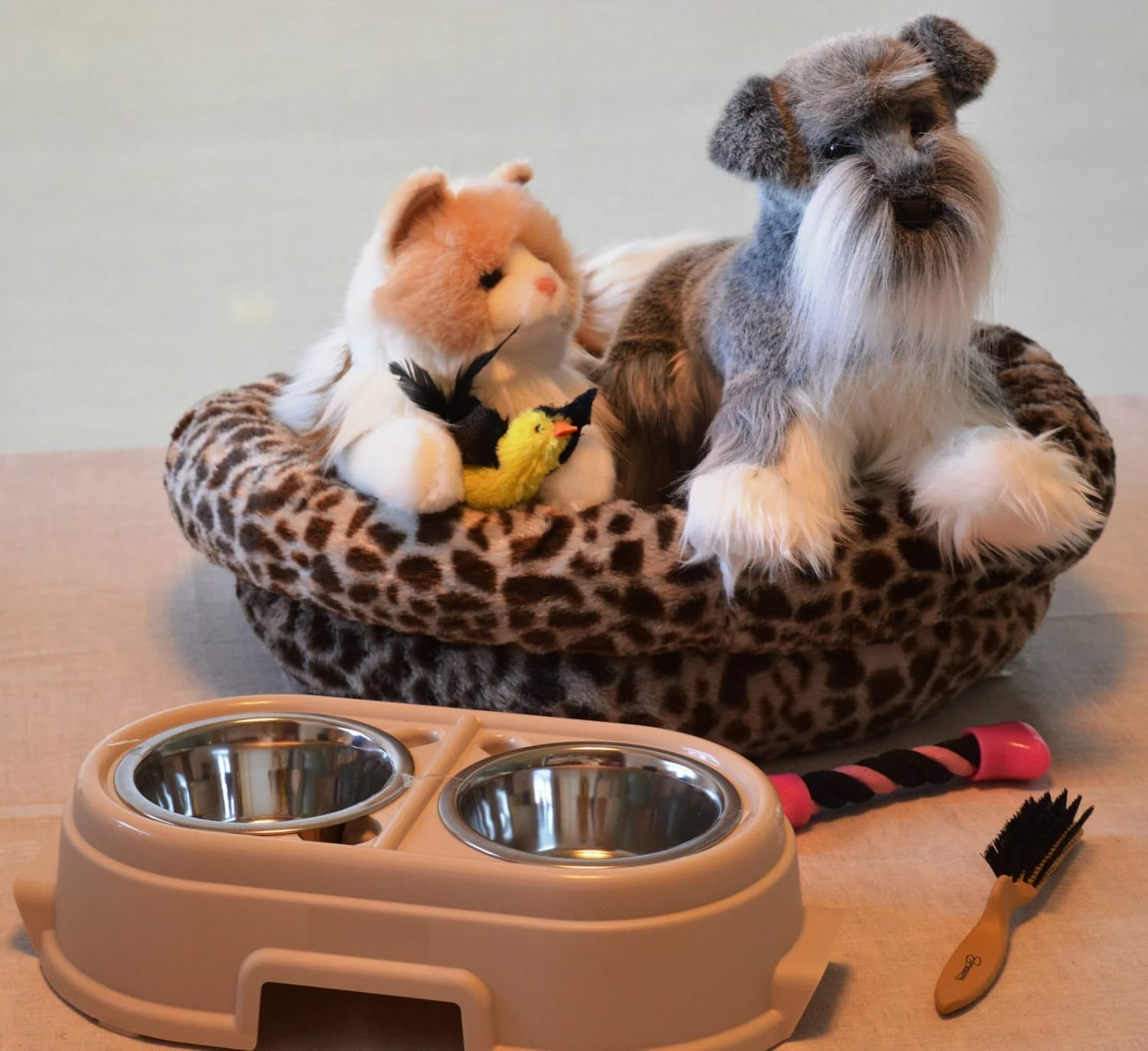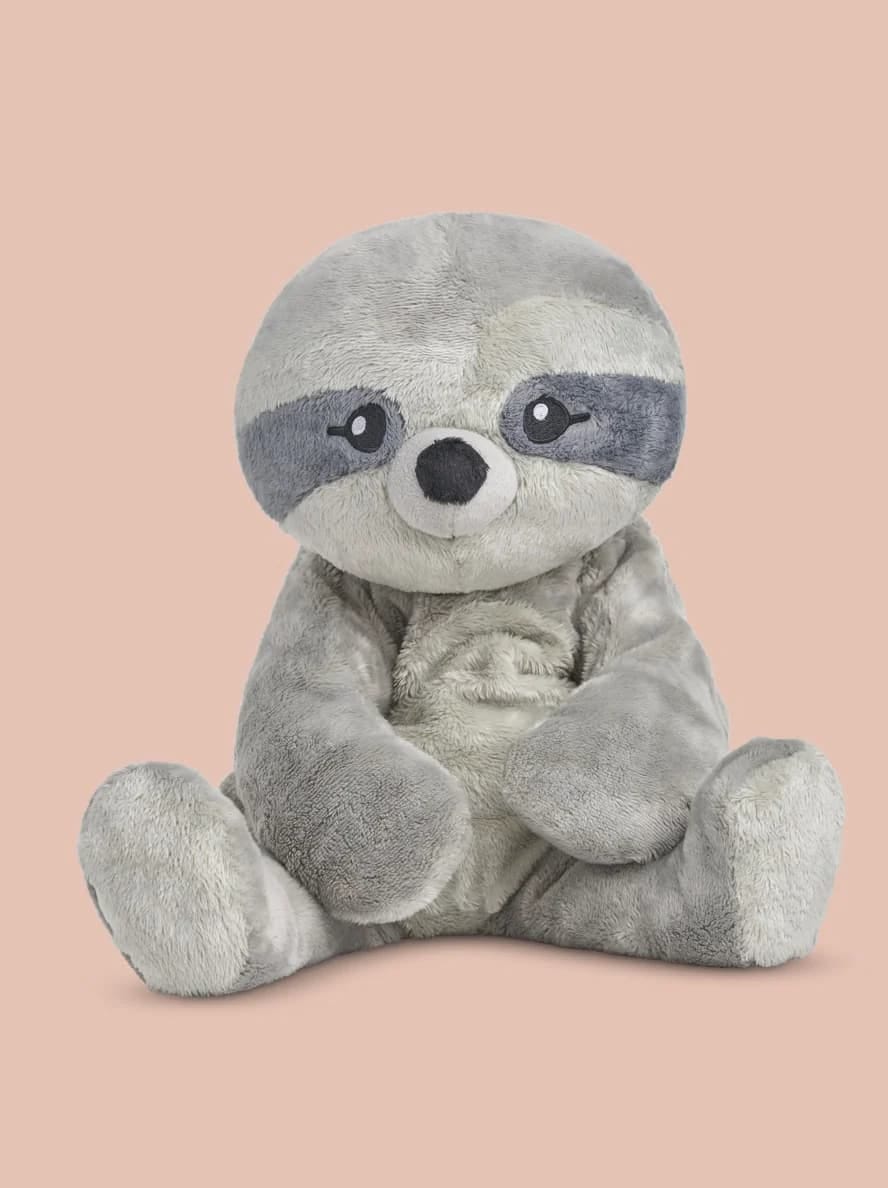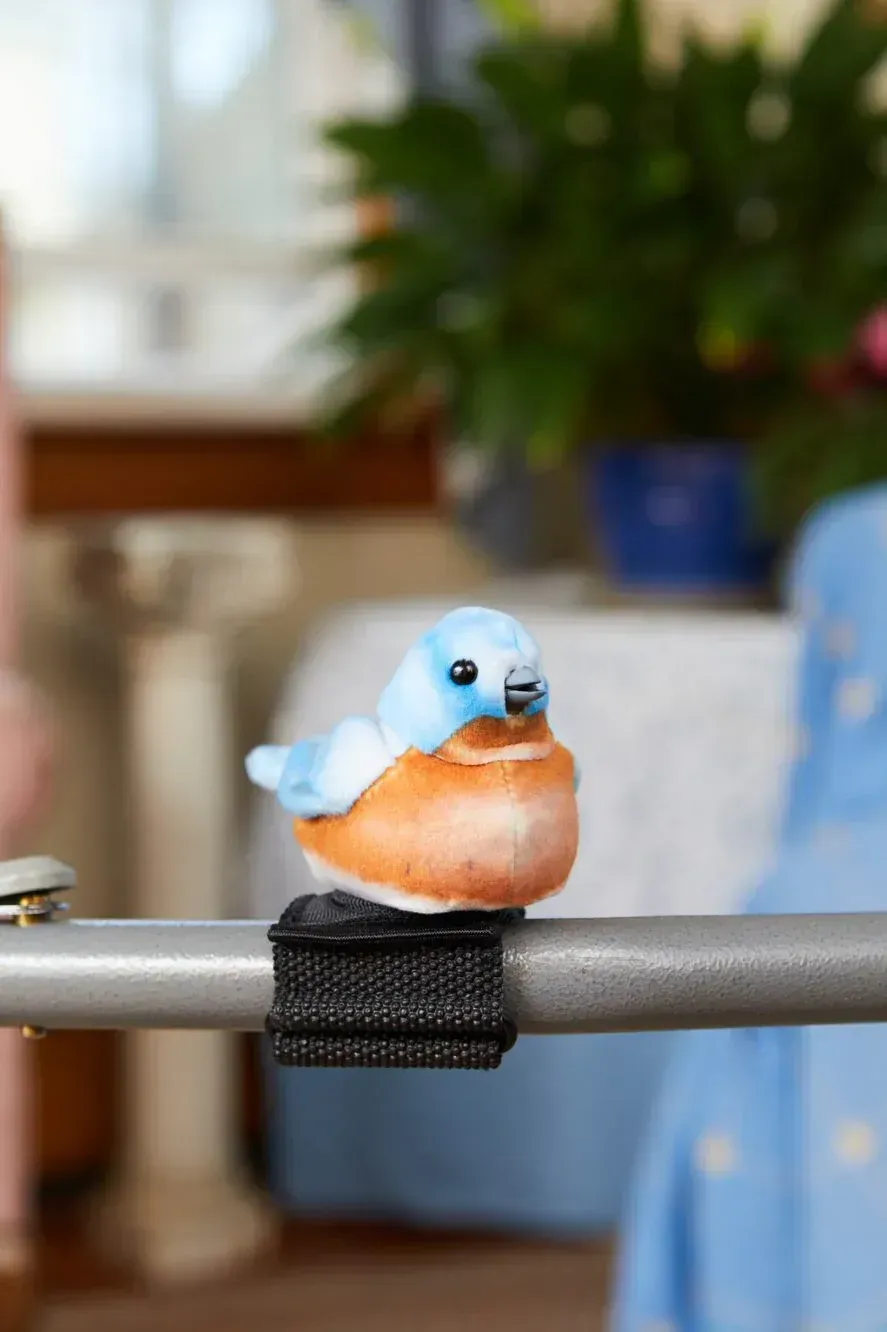Therapy Dolls and Realistic Stuffed Animals for Seniors with Dementia:
Comfort, Connection, and Emotional Support
Therapy Dolls and Realistic Stuffed Animals for Seniors with Dementia:
Comfort, Connection, and Emotional Support
What Are Therapy Dolls and Realistic Stuffed Animals for Seniors?
Therapy dolls and companion pets are specially designed comfort tools for older adults living with dementia, Alzheimer’s, or cognitive decline. These lifelike items—such as realistic baby dolls, realistic cats, dementia dog toys, and even companion robots for the elderly—help provide a sense of calm, emotional connection, and daily purpose.
These companions are more than toys. They awaken emotional memories, reduce agitation, and give seniors something to care for—boosting self-esteem, nurturing instincts, and feelings of security.
Benefits of Therapy Dolls and Realistic Stuffed Animals for Seniors
Help reduce anxiety, restlessness, and wandering behaviors
Stimulate emotional memories through touch, sight, and familiar routines
Encourage conversation and engagement in individuals with dementia
Promote a sense of purpose by providing something to nurture
Offer a calming presence during transitions, like bedtime or medical visits
Can be used as non-pharmacological tools to reduce stress
Who Can Benefit from These Comfort Companions?
Older adults in the middle to late stages of dementia
Seniors in memory care facilities or receiving in-home support
People with Alzheimer’s who respond well to familiar sensory cues
Caregivers seeking gentle and effective tools for emotional support
Families wanting to bring joy and comfort into a loved one’s daily routine
Featured Therapy Dolls and Realistic Stuffed Animals

"Unlike most lists filled with Amazon-only products, this selection features handpicked items from specialized platforms trusted by caregivers, therapists, and dementia care professionals."
JOY FOR ALL Animatronic Cat – Tuxedo: Realistic Cat Toy and Stuffed Animal for Seniors
This Dementia Cat Toy is more than just a toy; it's a companion pet for seniors. Designed to look, feel, and respond like a real cat, it purrs, meows, and moves gently when touched. Ideal for those experiencing cognitive decline, this Alzheimer’s cat toy brings calm, joy, and a sense of connection without the responsibilities of caring for a live pet. Suitable for individuals who miss the comfort of animals but are no longer able to care for one.
JOY FOR ALL Dementia Dog Toy – Golden Pup:
Realistic Dog and Stuffed Animal for Elderly Comfort
This animatronic dog toy for dementia patients offers the unconditional love of a dog without the demands of daily care. Designed as a companion pet for seniors, the Golden Pup features a soft, realistic coat, a gentle heartbeat, and responsive movements. It’s one of the most trusted Alzheimer’s dog toys, known for bringing peace, joy, and comfort to older adults in memory care.
Believable Babies Unisex Baby "Marty" – Realistic Baby Doll for Dementia Patients
The Believable Babies Unisex Baby "Marty" is a comforting and realistic newborn doll designed especially for seniors with dementia, Alzheimer’s, or cognitive decline. This therapy doll has a soft cloth body, realistic size, and a peaceful expression that encourages nurturing behavior and emotional engagement.
Unlike robotic or mechanical alternatives, Marty offers a non-electronic, low-stimulation experience, perfect for individuals who may find noise or motion overwhelming. Holding and caring for this realistic baby doll can help reduce anxiety, spark positive memories, and create meaningful moments of connection—making it ideal for both home care and professional dementia therapy activities.
HUG Sensory Doll by Laugh:
Innovative Therapy Doll for Dementia Care
The HUG Sensory Doll is a unique and comforting therapy doll for dementia patients, designed to promote emotional connection and reduce anxiety. Created in collaboration with caregivers and scientists, HUG offers a gentle weight, soft fabric, and an internal beating heartbeat that mimics human touch—providing a calming presence for people living with Alzheimer’s and other cognitive conditions.
This sensory companion supports dementia therapy activities by stimulating emotional memory, offering comfort, and encouraging interaction. It’s especially helpful for seniors who may feel lonely or distressed, making it one of the most innovative therapy dolls for dementia available today.
Memorable Pets Shop Kit – Set of 2 Therapy Stuffed Animals for Seniors: Dementia Therapy Activities – Plush Animal Duo for Seniors
The Memorable Pets Shop Kit is a delightful therapeutic activity set designed especially for seniors with Alzheimer's, dementia, or cognitive decline. This comforting kit includes two plush companions—a dog and a cat—crafted to resemble real pets in both appearance and softness. Beyond being stuffed animals for dementia patients, this set is part of a meaningful dementia therapy activity that encourages interaction, conversation, and emotional support.
It comes complete with 2 large 16" Memorable Pets of your choice, a cozy quality bed for napping, 1 water/food bowl for feeding (or candy treats), a hair brush for brushing, and 2 pet toys. These additions promote purposeful activity and create a realistic caregiving experience that brings joy and reassurance to elderly individuals in memory care settings or at home.
Sam the Sloth – Hugimals Weighted Therapy Plush for Seniors with Dementia
Deep Touch Pressure Sensory Companion for Emotional Calm and Cognitive Support
Sam the Sloth is a lovable, weighted therapy plush designed to provide calming sensory input through Deep Touch Pressure (DTP). Weighing 4.5 lb, this plush companion offers the sensation of a comforting hug, helping older adults with dementia feel grounded, relaxed, and emotionally connected.
With a friendly sloth face and soft, neutral-toned fabric, Sam invites touch and interaction without overstimulating the senses—making it a perfect therapy companion for seniors in memory care settings or at home.
Walker Squawker Bluebird – Companion Pet for Seniors: Animatronic Animal for Dementia Patients and Elderly Mobility Support
The Walker Squawker Bluebird is more than just a cheerful companion—it's a smart and soothing therapy toy for seniors with dementia. Perched on walkers or mobility devices, this lifelike bird chirps and responds to motion, encouraging movement while providing joyful interaction. Ideal for those in the early to middle stages of dementia, this product combines comfort, motivation, and companionship.
Buying Guide: How to Choose Therapy Dolls and Realistic Stuffed Animals for Dementia Care
Stage of Dementia:
Choose soft, cuddly dolls or pets for later stages; more realistic or interactive options (like weighted dolls or robotic pets) for early to mid-stages.Emotional Comfort:
Look for items that inspire nurturing or calmness—dolls that resemble real babies or lifelike pets can ease anxiety and provide companionship.Sensory Engagement:
Consider features like soft fabrics, weighted bodies, lifelike sounds (heartbeat, purring), or subtle scents for soothing sensory input.Safety and Care:
Opt for non-toxic, hypoallergenic materials. Ensure the product is washable or easy to clean.Caregiver Feedback:
Check for reviews from others in memory care settings or family caregivers to see how effective the item has been in real-life use.
Tips for Caregivers & Families:
Choose a therapy doll or realistic stuffed animal that aligns with your loved one’s personality—some may respond better to baby dolls that trigger nurturing instincts, while others may prefer calming plush pets.
Use these items during times of restlessness, loneliness, or anxiety—they can offer comfort, reduce agitation, and promote emotional well-being.
Incorporate the doll or pet into daily routines, such as rest time or quiet afternoons, to create moments of peace and consistency.
Name the doll or pet and refer to it regularly to foster a sense of attachment and familiarity.
Monitor reactions—if your loved one seems confused or distressed, gently redirect or try another type of comfort object. The key is gentle, meaningful interaction rather than forced engagement.
Support Comfort & Connection with Therapy Dolls and Realistic Stuffed Animals
The right therapy doll or realistic stuffed animal can bring moments of calm, joy, and emotional support into your loved one’s day.
FAQ
Yes. Stuffed animals can provide comfort, reduce agitation, and offer a sense of companionship for people with dementia. Their soft textures and familiar shapes can be soothing and emotionally grounding.
Absolutely. Therapeutic stuffed animals, especially those designed for dementia care, can stimulate touch and emotion, help calm anxiety, and even encourage social interaction.
Yes, if the individual responds positively. Therapy dolls can help dementia patients feel needed and purposeful. Many caregivers report improved mood, reduced aggression, and enhanced communication when dolls are introduced appropriately.
A therapy baby doll is a lifelike doll designed to comfort individuals with dementia. These dolls often resemble real babies and are used to reduce stress, encourage nurturing behavior, and stimulate positive emotions.
Doll therapy is a non-pharmacological approach that uses dolls to support emotional well-being in people with dementia. It helps reduce anxiety, aggression, and loneliness by offering a sense of purpose and connection.
They’re used to provide comfort, reduce agitation, and promote engagement in people with Alzheimer’s or dementia. Holding, cuddling, or caring for the doll can also improve motor skills and routine behavior.
Dolls can trigger memories of parenthood or caregiving, fostering emotional warmth and a sense of usefulness. They can also distract from stress or confusion, helping patients feel calm and engaged.
Some critics argue that it can be infantilizing or disrespectful if not introduced with sensitivity. It’s important to observe the person’s reaction and use doll therapy only if it brings comfort and dignity.
Realistic robotic pets like the Joy for All Companion Cat are designed for older adults, including those with dementia. They mimic real pet behavior through lifelike movements and sounds, providing comfort without the responsibility of real pet care.

Affiliate Disclosure:
This website contains affiliate links. If you click on these links and make a purchase, we may earn a small commission at no additional cost to you. These commissions help us keep this site running and allow us to continue creating helpful content to support caregivers and families.
